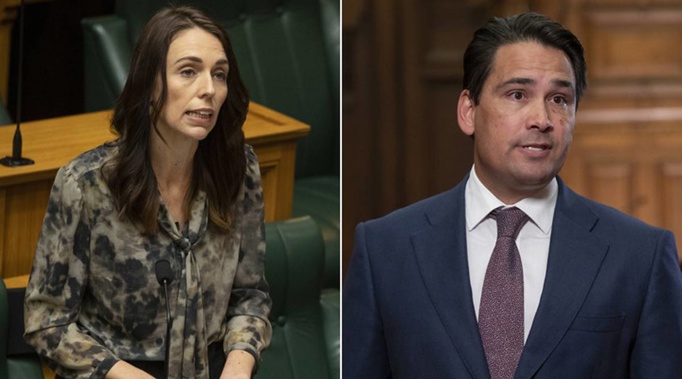
Prime Minister Jacinda Ardern and National Party leader Simon Bridges have faced off at Parliament for the first time in five weeks, Bridges questioning Ardern about the plight of workers and small businesses, and what the Government would do for them.
Parliament was meeting for the first time since lockdown, a skeleton crew with about 30 MPs scattered about the debating chamber to allow for social distancing.
Bridges asked Ardern about the likelihood of moving out of level 3 in two weeks, a decision Ardern said would be up to New Zealanders themselves and how well they abided by their rules.
Bridges also sought to focus on the plight of businesses and workers without jobs after news that 7000 people had joined the dole queue last week alone. He was pushing for the economy to be opened up more quickly, saying it could be done safely if the right measures were in place.
In defence, Ardern had pointed to some cases of Covid-19 among supermarket staff, saying that showed the importance of being careful in restricting contact between people to stop the virus resurging.
Earlier, both had also spoken after Ardern's ministerial statement on Covid-19.
Ardern told Parliament New Zealand did not want to be in the position of other countries facing a second wave of the virus and having to move back into lockdown.
"We are doing what we can to do it once, and do it right."
Ardern ran through the measures taken, from the first border closures and wage subsidies to the lockdown. The Government had so far put $23 billion into the response.
Bridges has been under some pressure for his response to the Government's actions but Ardern thanked the Opposition for supporting the decision to move to level 4 and chairing the Epidemic Response Committee.
"The stripes of the political divide have rightly paled to allow for a collective response to get our country through a global pandemic."
She said contact tracing and testing had "surged" into a rapid and comprehensive system.
The transmission rate was very low, but border controls and quarantine would stay in place to ensure a second wave did not arrive.
"They are our best defence against a resurgence of the virus here."
However, she said it had not been without pain – both in terms of deaths, ordinary life events such as weddings, and job losses.
Last week, more than 7000 people had signed up for the dole.
"But today, we begin to see activity return. We push forward to restart our economy."
She said 400,000 more people would get back to work from today.
In his response, Bridges emphasised National had supported lockdown but believed the economy should be reopening faster while doing so safely.
"The questions now are about the future. Our view is clear; this has been going on too long. We want to get New Zealand working again. Safely, and sooner than later."
He pointed to people who had written to him and spoken to the Epidemic Response Committee saying how the lockdown had impacted on them – from delaying surgeries and cancer treatments, to bringing a business to its knees.
He said the Prime Minister had said 'we had to stop a wave of devastation': "We now face another wave – a bigger wave – of economic devastation."
He said lockdown had not been so hard for those who still had jobs – such as the politicians themselves and bureaucrats.
"But tens of thousands of New Zealanders do not, and they are suffering."
"The wage subsidy masks the carnage, but only in the short term. Even with it, many won't survive the weeks before Budget Day."
Bridges said there was a three-phase approach: getting out of lockdown as soon as possible, the medium-term challenge of getting out of lockdown and "how we operate in a two-metre world", and the longer-term positioning for a post-Covid-19 world.
He said trying to restore the economy was crucial, and needed "clear, pragmatic rules".
"We can be vigilant on the things that matter – the border, contact tracing, testing, PPE, distancing – and get New Zealand working again. We've done well so far, and that allows us to do more."
On a post-Covid world, he said his view was not Wellington-committee, though he understood Government was critical to the response. He said it was also necessary to unleash the private sector.
NZ First leader Winston Peters said the Government had known from the start that it would be a massive economic hit, and it would need to intervene to help people survive.
"Before the Covid, the economy was already in a troubled state."
He said the troubles of 2008 and 2009 were not resolved, "they had simply been plastered over".
Peters said it was a chance to reshape the economy, including creating "far better autonomy for New Zealand".
He said that meant making or growing things in New Zealand, rather than importing them.
"In short, if we can grow it or make it at near competitive prices, then we will grow it or make it."
It also meant giving New Zealanders jobs over foreigners, and "putting up the shutters to more offshore ownership of this country's economy".
He said overseas investment should be decided based on its value to New Zealand.
Take your Radio, Podcasts and Music with you








